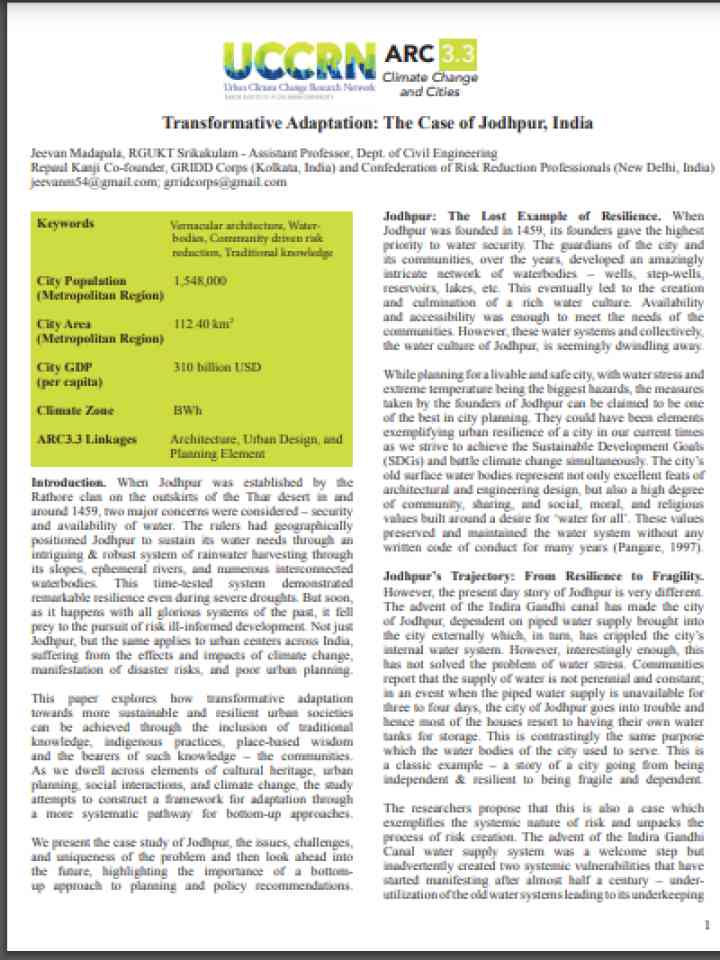Transformative adaptation: The case of Jodhpur, India
This paper explores how transformative adaptation towards more sustainable and resilient urban societies can be achieved through the inclusion of traditional knowledge, indigenous practices, place-based wisdom and the bearers of such knowledge – the communities. Jodhpur, a vibrant city bordering the harsh Thar Desert, once stood as a testament to urban resilience.
The authors propose actions that are potentially useful in other cities such as:
- Like Jodhpur, many cities in India are a treasure trove of traditional knowledge, indigenous practices and place-based wisdom fostering climate action which must be mainstreamed and integrated into development agendas. The pathway followed and suggested through the case of Jodhpur, which includes the involvement of people from all quarters, relevant stakeholders through a bottom-up approach in planning could be immensely useful for resilient sustainable development of other urban centers.
- In similar approaches, maintaining a comfortable balance between traditional knowledge and contemporary scientific advancements is a key factor.
- Conducting training programs and workshops can increase awareness and can ensure the continued use of cultural practices in climate adaptation and intergenerational transmission of indigenous knowledge in climate adaptation.
- Establishing collaborative partnerships between stakeholders at the local, state and national levels is absolutely crucial. Such partnerships should encompass government as well as community-based organisations, including representation from communities.
- A continued feedback mechanism for analyzing and redesigning the implementation activities is crucial.
Explore further
